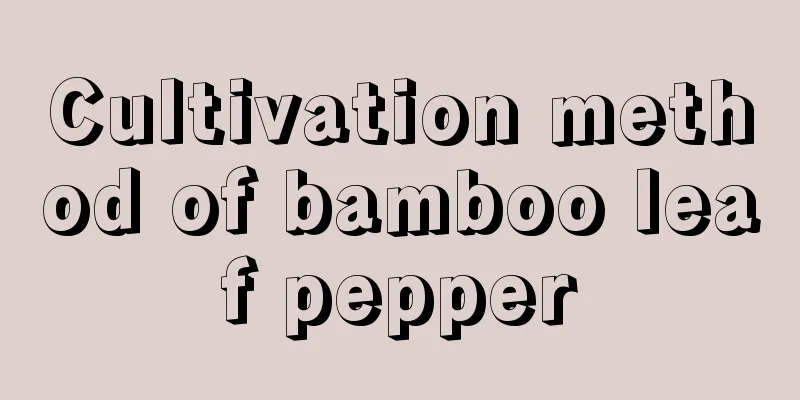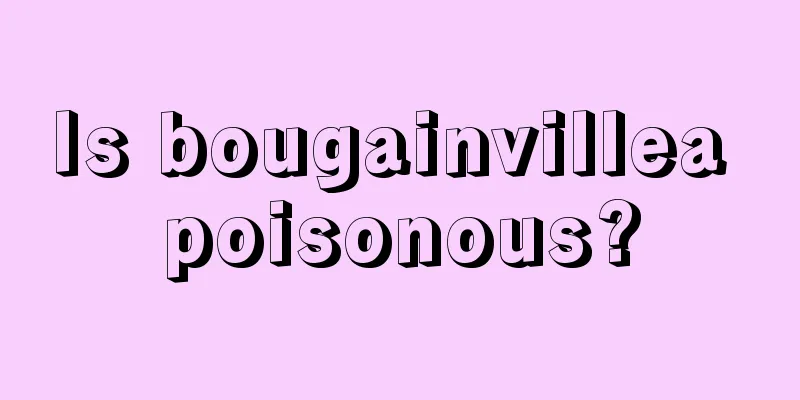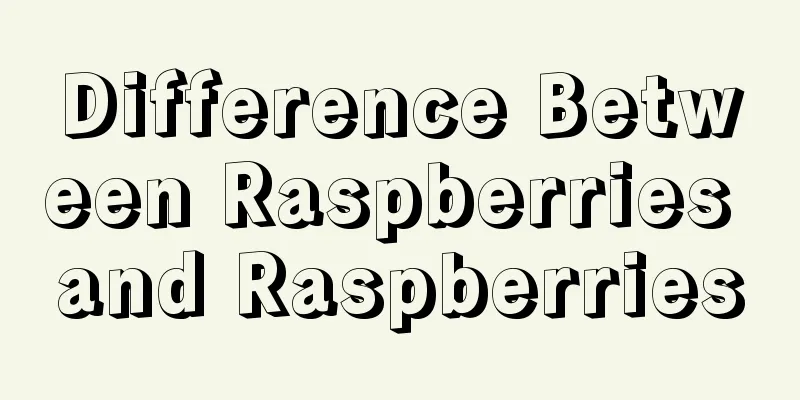Cultivation method of bamboo leaf pepper

1. Basic IntroductionZanthoxylum bungeanum is also called vine pepper, named after its long vines. Its roots, stems, leaves and fruits can all be used as Chinese medicinal materials, which have the effects of preventing wind and cold, relieving pain and promoting qi circulation, and are very effective in treating rheumatic bone pain. There are two sowing seasons: spring and autumn, but autumn sowing is the main one. 2. Breeding methods1. Selection of seedling site: The preferred planting site for Zanthoxylum bungeanum is a place that is not prone to waterlogging, can be irrigated, has good ventilation and light transmission, and has deep, loose, fertile, moist, and well-drained soil. At the same time, the light conditions near the planting site should be relatively sufficient. 2. Soil: Zanthoxylum bungeanum is not very demanding on soil pH and grows well in neutral or acidic soil. Try to choose a place for planting Zanthoxylum bungeanum that has deep, loose, fertile, neutral or slightly acidic soil. 3. Water: Zanthoxylum bungeanum prefers a humid growing environment and has a high demand for water during the growth process. Water it frequently to keep the soil moist. However, it should be noted that during heavy rainfall, drainage should be carried out in a timely manner to avoid water accumulation that affects its growth and development. 4. Fertilization: Mainly use nitrogen fertilizer, supplemented by biological fertilizer. Pay attention to the dosage when applying fertilizer, and apply small amounts frequently as the basis. Prevent fertilizer damage caused by excessive fertilization, and occasionally use foliar fertilization and micro-fertilizer to meet its nutritional needs for growth. 3. Maintenance Tips1. Preparation of seedling field: The planting land must be deeply plowed. Allow the deep soil to mature, enhance the soil's permeability, improve its ability to retain fertilizer and water, and create a good growth environment for Zanthoxylum bungeanum seedlings. 2. Loosen the soil and weed: Loosen the soil in time and weed frequently. Maintaining good permeability in the nursery field can reduce water evaporation, reduce the occurrence of diseases and pests, and avoid weeds competing with seedlings for fertilizer. 3. Pests: Because the growing environment of Zanthoxylum bungeanum is relatively warm and humid, the chance of diseases and pests occurring is very high. The most common insect pest is rust, which usually requires spraying pesticides to solve the problem. If the degree of insect infestation is relatively minor, it can be caught manually; if the degree is relatively severe, it can be dealt with centrally by spraying pesticides. |
<<: The difference between rose and rose
>>: Differences between Cosmos and Marigold
Recommend
How to grow bougainvillea so that it blooms more?
Bougainvillea is loved for its affordable price a...
How to divide the large-leafed Dieffenbachia into pots so that it can survive easily
When is the best time to divide the big-leafed Di...
How to grow baby's breath in potted plants
Potted plant care 1. Watering Potted baby's b...
The reproduction method of sheep
Cuttings This method is relatively simple and is ...
How long does it take for Clivia to bloom and when does it bloom
1. How long does it take for Clivia to bloom? Cli...
What type of people does bamboo represent?
1. Which type of people does it represent? Bamboo...
What should I do if my red-eared slider turtle doesn’t eat?
The red-eared slider, also known as the red-eared...
What are the cultivation methods and precautions of goldfish flowers?
Goldfish flower cultivation method Goldfish flowe...
When is the right time to sow greenhouse watermelons?
Suitable time for planting greenhouse watermelon ...
Environmental conditions and characteristics of Masson pine growth
Environmental conditions and requirements for the...
Keeping these flowers indoors can bring good luck
Lucky Bamboo Lucky bamboo is also known as the th...
The correct way to prune the fortune tree
There are actually many secrets to growing a mone...
How to overwinter hydroponic plants in winter
Place it in the sun as much as possible The sunli...
How to grow Acer truncatum
1. Breeding environment 1. Soil: Loose, well-drai...
The efficacy and function of jasmine tea
1. Antibacterial and anti-inflammatory Jasmine ha...









